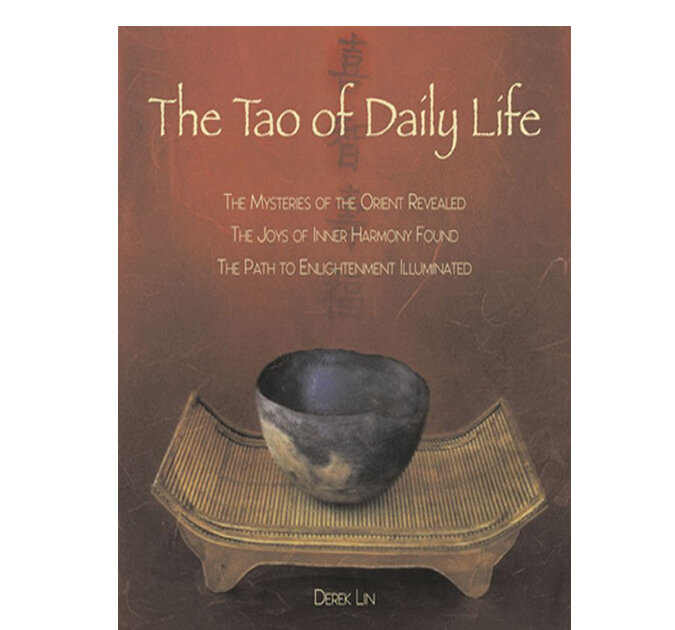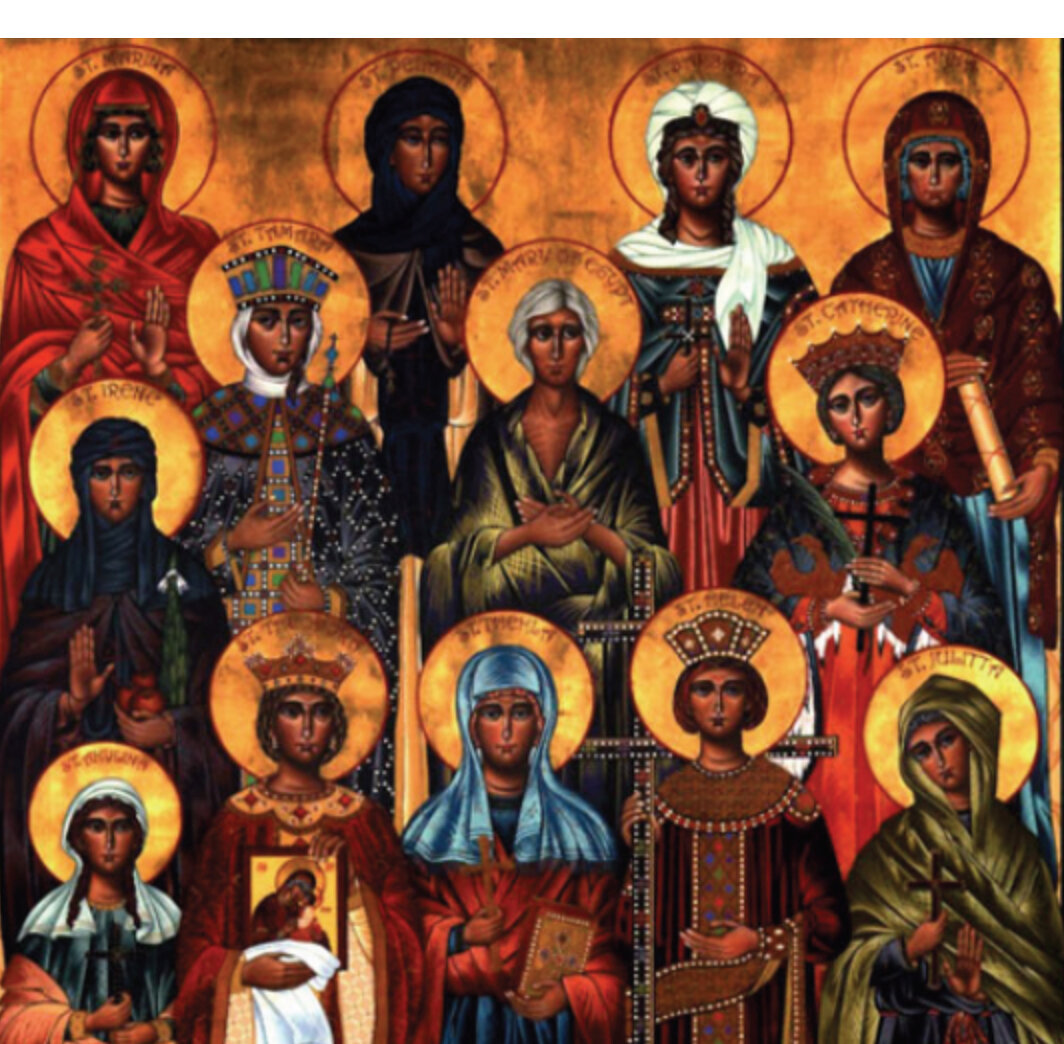
“The Tao of Forgiveness” (excerpt) by Derek Lin
How Do We Forgive Those Who Have Offended Us?
One day, the sage gave the disciple an empty sack and a basket of potatoes. "Think of all the people who have done or said something against you in the recent past, especially those you cannot forgive. For each of them, inscribe the name on a potato and put it in the sack. "
The disciple came up with quite a few names, and soon his sack was heavy with potatoes.
BE A SUPPORTER OF MR. LIN’S FINE WORK

“Why Buddhism and the West Need Each Other: On the Interdependence of Personal and Social Transformation” by David Loy
The mercy of the West has been social revolution. The mercy of the East has been individual insight into the basic self/void. We need both.
~Gary Snyder
Another way to put it: the highest ideal of the Western tradition has been the concern to restructure our societies so that they are more socially just. The most important goal for Buddhism is to awaken and (to use the Zen phrase) realize one’s true nature, which puts an end to dukkha—especially that associated with the delusion of a separate self. To- day it has become more obvious that we need both: not just because these ideals complement each other, but also because each project needs the other.
BE A SUPPORTER OF THE HUFFINGTON POST AND DAVID LOY

"Longing" (excerpt) The Seekers by E. Lesser
Longing is my fuel of choice on the spiritual journey. Spiritual longing is a sort of loneliness for an unknown yet deeply perceived presence. Some call the presence God; some call it peace; some call it consciousness; some call it love. Its source rests in the well of our own hearts.

"COMING OUT OF THE SYSTEM" by Stephen Russell (Barefoot Doctor)
Just billions of people, joining up at least five days a week to engage in habitual interactions, the form and terms of which have been previously agreed upon but which are subject to change as things progress and which, one way or another, lead to pollution in the atmosphere and sewage in the sea. Hence, by group consensus, we have traffic jams at rush hour, globally, every morning and every evening, and people the world over believing in the power of money. A minority regulate the status quo of this conundrum and the majority goes along. This is normal and results from the inefficient use of imagination on the part of the individual.

"The Fact of Our Oneness" (excerpt) The Exquisite Risk by Mark Nepo
That which can't he stolen hut only given, that which survives by opening us all . . .
All the traditions speak of what Thomas Merton called a Hidden Wholeness, an unseen tissue that joins everything. It is in fact our deepest and oldest home. In truth, it is not really hidden, just so immense that it's hard for us to hold in view for very long. In actuality, the fact of our Oneness is constant and everywhere, a secret hidden in the open.
BE A SUPPORTER OF MR. NEPO’S FINE WORK

"Psychology of Lack" (excerpt) Tao of Abundance — Laurence Boldt
The dynamics of the psychology of lack go like this: Simultaneous to the formation of the individual ego there arises a profound sense of lack, a feeling of separation from everything else in life. This sense of separation brings a feeling of contraction and a sense of incompleteness, which we try to mitigate through mental, physical, and emotional attachments. The perceived need to defend and expand our attachments, in turn, creates a feeling of struggle.
BE A SUPPORTER OF MR. BOLDT’S FINE WORK

The Tao of Forgiveness (excerpt) Story 5- "Benefit or Harm?" by William Martin
Once, long ago in ancient China, a drought of many years' duration was bringing great misery to a small province. Year after year the people of the province waited for the rainy season to come and bring the needed nurture for the rice crop. Each year the season produced very little rain and the rice crop dwindled. Many were on the verge of starvation. Indeed, some elderly people had died of illnesses brought on by their hunger-weakened condition.

"Identification With Things" (excerpt) The New Earth by Eckhart Tolle
The people in the advertising industry know very well that in order to sell things that people don't really need, they must convince them that those things will add something to how they see themselves or are seen by others; in other words, add something to their sense of self. They do this, for example, by telling you that you will stand out from the crowd by using this product and so by implication be more fully yourself. Or they may create an association in your mind between the product and a famous person, or a youthful, attractive, or happy-looking person.

"Belief in Inerrancy May Be Hazardous to Faith (PART 2) — Problems with Biblical Inerrancy" (from: Religious Tolerance.org)
Intentional translation errors: No Bible translation into English is free of bias. Essentially all versions of the Bible are the product of translators who come from a similar theological background. Being human, they sometimes produce versions of the Bible that tend to match their own belief systems. For example:
The original Hebrew and Greek texts contain a number of different concepts for the place where people will live after death: Sheol, Gehenna, and Hades. Some translations transliterate these place names, and so they appear in the English text in their original forms as "Sheol," "Gehenna," and "Hades." The reader is thus aware that they refer to different beliefs about life after death. But…
SPECIAL THANKS TO AND PLEASE SUPPORT RELIGIOUS TOLERANCE.ORG

"Belief in Inerrancy May Be Hazardous to Faith (PART 1) — Problems with Biblical Inerrancy" (from: Religious Tolerance.org)
Why belief in biblical inerrancy can be hazardous to one's faith:
When a person considers the Bible to be totally inerrant in its teaching of theology, morals, beliefs, geology, geography, history, etc., it may leave the person's faith vulnerable. Even one proven error could shatter their entire belief system and make the Bible seem useless.
Mark Mattison wrote:
"If in actual fact Caesar Augustus did not really order a census while Quirinius was governor of Syria [or] if it turns out there really was only one Gadarene demonaic rather than two, then the entire Bible becomes worthless and every tenet of Christian faith falls flat. If one single discrepancy emerges, it's all over. This makes Christian faith an easy target for skeptics, and drives believers to unimaginable lengths to 'defend' the Bible." 1
SPECIAL THANKS TO AND PLEASE SUPPORT RELIGIOUS TOLERANCE.ORG

7 Reasons Why Evangelicals Should Read Thomas Merton by Michael Wright
I first learned about Thomas Merton when I skipped chapel at my Christian high school. I started to meet weekly with a kindhearted Bible teacher who looked through my cynicism and saw a desire for a deeper spiritual life. I’m grateful for those conversations—especially the day he told me about a book written by Merton called No Man Is An Island. As I started reading it, I was excited to find a monastic writer with piercing insights into my own inner life and a Christian mystical tradition markedly different from the subculture around me. It was providential timing: I was slipping into depression that would last for years, and Merton quickly became a friend and guide through a spiritual wilderness. So today, in honor of his birthday and his lasting impact on the wayfarers and mystics among us, here are seven reasons why evangelicals should read Thomas Merton:

“WOMAN as Erotic-Spiritual Power” (excerpt) Fire in the Belly: On Being a Man by Sam Keen
The third aspect of WOMAN is as an irresistible erotic-spiritual force. She is the magnet, and men the iron filings that lie within her field.
It is difficult to give this aspect of WOMAN a familiar name because Western mythology, philosophy, and psychology have never acknowledged its reality. Once, men and women assumed that the goddess controlled all things that flow and ebb—the waxing and waning moon, the rise and fall of tide and phallus. But ever since God became Father, and men have considered themselves the lords over nature (and women), we have defined man as active and WOMAN as reactive. Consequently, we have never developed a language that does justice to WOMAN'S erotic-spiritual power.

"Male and Female Differences and Strengths - The Yin Yang Perspective" by Felice Dunas
The most fundamental essential philosophies behind Oriental history, culture, religion, government and business is Yin Yang theory. This is one of the oldest cosmologies in all of human thinking. People have been using this understanding of life for over 5000 years. We don’t know its true historical timeline as archeological evidence can document only around 5000 years at present. Yin Yang theory works with the premise that all of life stems from a point of perfect balance. On either side of that balance you have the left and the right, the wet and the dry, the night and the day, the female and the male, the negative and the positive, multi-faceted focused, single goal focused, etc.
BE A SUPPORTER OF FELICE DUNAS’ WORK

“Losing Jesus’ Cultural & Theological Baggage” by Adyashanti
It wouldn’t matter if he grew up a Jew, or a Christian, or a Buddhist, or a Hindu, because he’s speaking about the structure of religion itself—its hierarchy, its tendency to become corrupted by human beings’ desires for power, for influence, for money. ...

“Mad Dash!” by William Martin
A new drive-through food establishment has opened in Chico. It’s called… wait for it… Mad Dash! The sign out front proudly proclaims, “Two slices of pizza and a drink in 90 seconds!” I’m thinking of opening a competing place called Instant Gratification! People will pull up to a pump, insert their credit card, stick a hose in their mouth and pump a liter of high fructose corn syrup directly into their gut. No muss, no fuss, no nutrients to get in the way and keep us from getting about the business of… whatever it is that is so urgent.

"Understanding Gender" (excerpt) The Seekers — Elizabeth Lesser
I often turn to Jungian psychology to better understand issues of gender. Jung separated personalities not so much into male and female, but into unique blends of masculine and feminine qualities, which he believed were found in all human psyches in varying degrees of potency. The masculine principle, or archetype, as Jung called it, celebrates rational thinking, heroic power, goal-oriented achievement, and independence. It is transcendent, visionary, mindful. The feminine principle loves to feel; it compels us to nurture; it links sexuality with relationship; and it reveres life and death as natural cycles of nature. It is embodied, intuitive, heartful.
BE A SUPPORTER OF MS. LESSER’S WORK

"There are Teachers Everywhere" (excerpt) The Exquisite Risk by Mark Nepo
The Upaguru—Hindu for the teacher that is next to you at any moment.
From the rotting tree felled by lightning to the water re-smoothing after the whale dives down, everything is of equal sanctity and grace. From the darkness we can't see through to the [ tenderness of a grandfather afraid to speak, everything and everyone is a teacher. Each flower, each bird, each suffering, great and small, each eroded stone and crack in that stone, each question rising from each crack—every aspect of life holds some insight that can help us live. We can learn and deepen from anything anywhere.

"NATIONAL AND RACIAL PAIN-BODIES" (excerpt) The New Earth by Eckhart Tolle
Certain countries in which many acts of collective violence were suffered or perpetrated have a heavier collective pain-body than others. This is why older nations tend to have stronger pain-bodies. It is also why younger countries, such as Canada or Australia, and those that have remained more sheltered from the surrounding madness, such as Switzerland, tend to have lighter collective pain-bodies. Of course, in those countries, people still have their personal pain-body to deal with. If you are sensitive enough, you can feel a heaviness in the energy field of certain countries as soon as you step off the plane. In other countries, one can sense an energy field of latent violence just underneath the surface of everyday life. In some nations, for example, in the Middle East, the collective pain-body is so acute that a significant part of the population finds itself forced to act it out in an endless and insane cycle of perpetration and retribution through which the pain-body renews itself continuously.

"Awakening from the Egoic Trance" (excerpt) — FALLING INTO GRACE by Adyashanti
If we really want to address the whole issue of suffering, as well as our desire and yearning for freedom, love, and connection, then we need to learn how to look clearly at our own minds…

"Christian Mysticism as a Threat to Papal Traditions" by Hayley E. Pangle
From the Gnostics of the second century to the Waldesians of the thirteenth century, popular religion as practiced outside the structures of the Roman Church challenged the religious authority of the papacy and greatly influenced the decisions it made as it refined doctrines, decrees, and practices that it deemed acceptable to the church. Christian mysticism, although having its roots in the earliest days of Christianity, expanded and intensified in the eleventh through fourteenth centuries in Europe. Several aspects of the mystic Christianity in the Middle Ages challenged the traditions of the church, including the mystics’ theological interpretation of scripture, their graphic visions, and their threat to established gender roles.

